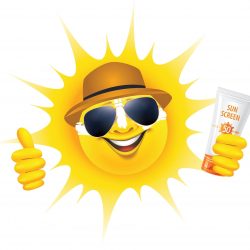The sunscreen paradox: McGill University researchers warn of ‘false sense of security’
The sunscreen paradox: McGill University researchers warn of ‘false sense of security’ “Sunscreen is important, says Dr. Ivan Litvinov, but it is also the least effective way to protect your skin when compared to sun protective clothing and sun avoidance.” “Sunscreen usage is climbing, but so are melanoma and skin cancer rates: this, researchers say, is the sunscreen paradox. The problem is that people use sunscreen as a ‘permission slip’ to tan,” said Dr. Ivan Litvinov, an Associate Professor in the Department of Medicine and Chair of the Dermatology Division at McGill University.” The SunFit study includes Atlantic PATH participants and is highlighted in a new article from McGill University News: https://www.mcgill.ca/newsroom/channels/news/sunscreen-paradox-mcgill-university-researchers-warn-false-sense-security-352205


